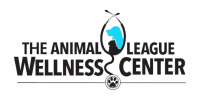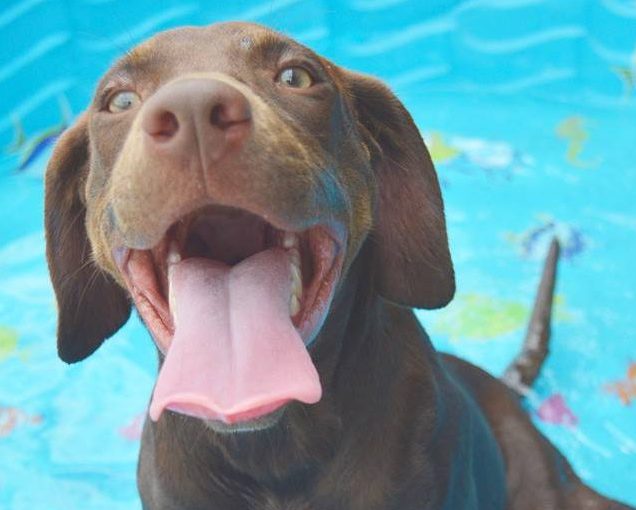Sunshine. We love it, and our pets love to soak it up. It’s good for us, healthy in adequate doses, but we also know too much can be harmful. Have you ever stopped to wonder if it could be just as harmful to your pet, as it is to your own skin?In one word… yes.
When your dog or cat hits that nice ray of sunshine coming in from a window, what do they do? They lie down on their side or back and sleep in that sun, content with the warmth. When they go outside to play, eventually you see them sunbathing in the grass or a nice cool pile of dirt. No matter the season our pets love a good ray of sunshine to lie about in, and they are more exposed to the sun than we may realize.
Sunburn Symptoms
Too much exposure to the sun without protection, and your pet can suffer from sunburns, and possibly skin cancer. Symptoms of sunburn include red, inflamed skin that becomes irritated and painful, and this can lead to hair loss and scaly skin. If your pet becomes sunburned, call your vet or visit The Wellness Clinic for options on how to repair their skin and help with the irritation and pain.
Protecting Your Pet from the Sun
Seeing how much time our pets spend outside, pet owners should be careful of how much sun their pets’ skin is exposed to. So how do you protect your dog or cat from getting sunburned, and protect them from skin cancer? The same way we humans protect our own skin, sunscreen, specifically designed for pets. And these specialized sunscreens can be found online and in some local pet stores.
To help minimize UV exposure on your dog or cat’s unprotected skin, as a pet owner you can:
- Limit the amount of time and the time of day they are outside playing in the direct sun. Generally between the hours of 10am and 3pm, when the sun is the strongest, would be the ideal time to keep them indoors and out of any direct patches of sun coming in from a window. Bring them out to play first thing in the morning; or a nice run right before dinner and bed time. This is a great way to ensure they stay healthy while still getting in that much needed play time.
- Buy UV protective clothing for your dog or cat to wear. This might be especially helpful if you have a dog or cat that is lighter in hair color, or has close cropped or thin hair, and you enjoy doing outdoor activities or camping with them.
- Use sunscreen.
Sunscreen is a great way to help protect your pet’s skin if they must be outside during those peak sun times, and if they can’t wear clothes to protect their exposed areas. However, you cannot run to the store and pick up any bottle of sunscreen and slather it all over your pet’s belly. Some human sunscreens can be extremely toxic to your pet. The best course, if you can get it, is to use verified pet sunscreen. And if you own a cat, make sure the pet sunscreen specifically says that it is usable for cats.
What to Look for in Pet Sunscreen
- First you’ll want to look for pet sunscreen that does not contain octyl salicylate and zinc oxide. These two products are in many human sunscreens and are extremely toxic to animals.
- Also look for a fragrance-free formula.
- Make sure it’s non-staining.
- You’ll want a sunscreen that contains UVA and UVB barriers similar to SPF 15 or SPF 30 for humans.
Where to Apply Pet Sunscreen
Like humans, you need to reapply throughout the day.
Areas that need a higher area of protection are the nose, around the lips, the tips of their ears, the groin area, and the belly. Also, lighter colored hair dogs are more susceptible to UVA and UVB rays. If your dog or cat has skin allergies that cause balding or thin hair in some areas, are going through medical treatments that cause hair loss, are naturally thin haired or hairless all over, or is shaved during the hot summer months to help with the heat, you will want to put sunscreen on these newly exposed areas of skin.
Where to Find Pet Sunscreen
Per vetinfo.com, some brands of pet sunscreen that are zinc oxide-free you can look for are Doggles, NutriVet, and Vet’s Best. They are made with all natural, non-toxic ingredients such as aloe and willowherb, and can be found online.
If You Can’t Find Pet Sunscreen
If you are unable to get your hands on pet specific sunscreen, then look for sunscreen that is safe for babies and does not contain octyl salicylate and zinc oxide, as mentioned above. These two products are in many human sunscreens and are extremely toxic to animals. Some symptoms they can exhibit by ingesting these products are anemia, nausea/vomiting, chills/fever, yellow eyes, diarrhea, stomach pains, etc. If you have applied sunscreen to your pet that was not a verified pet sunscreen, and they exhibit any of these symptoms, immediately call your vet or visit us at The Wellness Clinic. Our pets lick themselves all the time, when we put sunscreen on them they will inevitably ingest some of it, so you must be very careful that anything you put on their skin is not dangerous to swallow. A good rule of thumb to go by is if it’s toxic for a human to ingest, it’s toxic to your pet as well.
More Sunscreen Info for Pets
If you would like to know more about using sunscreen for your dog or cat, you can visit vetinfo.com or petmd.com, however before making a final informed decision you need to talk with your vet. If you have a specific type in mind, bring the information to your vet and have a talk with them about the product and its safety.
Cover model: Captured in this photo is Chubby, a female chocolate Labrador blend who was rescued, rehabilitated, and re-homed by The Animal League. Shortly after The Animal League met Chubby, she was found to have some skin issues. She was treated in the The Loos Recovery Center at The Animal League, which houses sick pets on-site at the shelter without exposing healthy pets to disease. The Animal League is the only Central Florida shelter to have such a set-up!
Thanks to contributions from The Animal League’s Sunshine Fund, and the dedicated work of the shelter’s animal care staff, Chubby was able to make a full recovery.
Chubby was also a Sunshine Fundraiser adoptable pet which means she helped other sick, injured, and homeless pets to be rescued by The Animal League through her slightly higher adoption fee. She was “paying it forward”! The Sunshine Fund helps The Animal League pay for major medical bills so that they can keep on rescuing and saving lives.

